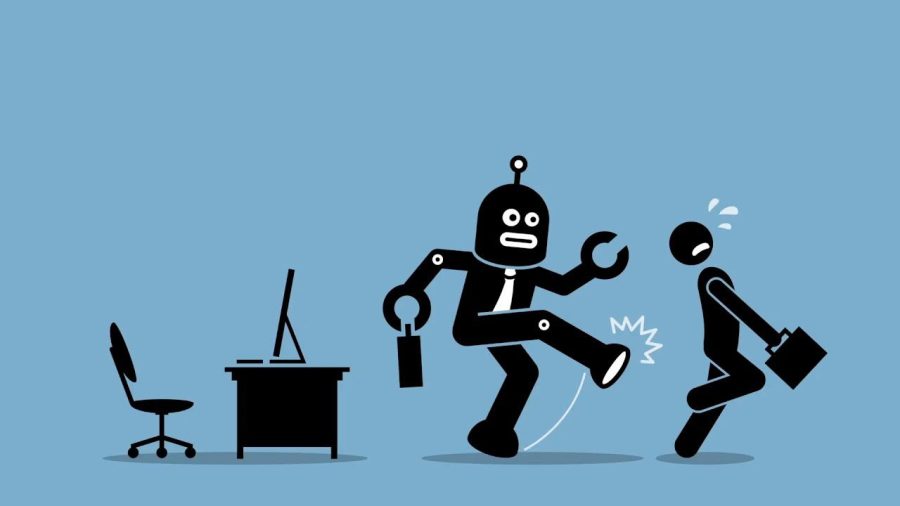Doing Without Thinking: Technology Goes Too Far
Doing Without Thinking: Technology Goes Too Far
February 20, 2018
There are times, frequent if not many, when mankind takes on an endeavor, full swing, without considering the consequences of our actions. In any event, I believe that there is a growing trend, without any signs of slowing down, that will endanger the fabric of society as we know it: the process of automation. This argument won’t delve into the dangers of artificial intelligence, but rather, the dangers of what it means to be human. While some praise the rise of automation as an increase in the quality of life, and a strengthening of the economy, there are some other considerations at play here.
Descartes once described animals as flesh-bound “automata,” in relations to humans. As such, animals were put into an inferior category of being. He argued that they lacked a conscience, and were mere machines. In the event that robots and artificial intelligence do ascend to a superior level than that of humans, what defense do we have to being put in an inferior category ourselves. While some may argue we have a soul, or feelings, this may fall to silent ears if robots perform nearly all tasks in civilization. It would seem engineers and programmers intend for their creations to be as “human” as closely possible, all the while being more efficient. With a population of nearly eight billion on Earth, I would reckon that the value of human life would silently be put into question. If you could replace these eight billion in the workplace, what next?
What would the role of humans be in a post-human civilization? In all likelihood, I’d imagine a strong increase in anxiety and depression among the populations of Earth. If everyone were out of work, many might lose a sense of purpose rather rapidly. Some thinkers have proposed some interesting solutions to a scenario where all employment is automated: universal basic income. In such a scenario, everyone in their respective countries would received a base salary, or a spending allowance more or less. Everyone would be out of work, but taxes on industries would theoretically give everyone a piece of the pie to get by. While in theory this might sound like a nice little solution, I predict strong levels of dissatisfaction among the population. I would be led to believe however, that humans value social interaction enough to have humans in some select positions. I think caregivers, social workers and perhaps even human artists could retain their spots.
With the potential to put nearly everyone out of work, why do we keep pressing forward? I think it falls in line with what I would describe as the ever increasing efficiency mentality of capitalism. The economy demands that technological progress augment production methods to make things efficient to a nearly infinite degree. This trend would simply be a graph that ever creeps upward, with no end in sight. While some may care about the environment or human welfare, these areas occasionally conflict with this law of efficiency. The economy demands that it becomes increasingly efficient, forever. Some economists may argue that automation and robotics will increase the general productivity of workers in the economy, but I find it increasingly hard to fathom a United States where hundreds of millions obtain a STEM degree, and can create enough necessary jobs to stem the tide. Maybe I’ll be proven wrong.
In any event, I think we should sacrifice a little economic growth to sustain human employment. I simply cannot imagine a “healthy minded” world where human activity is replaced by robots and automation. I think it would provide a harsh philosophical dilemma. By the numbers, the economy would likely grow in such a scenario, but I think I value people’s hard work and dedication more than efficiency and growth. Going against these advances would be artificial ultimately, and trying to sustain these jobs would not be possible forever, but I think it’s worth stemming the tide for as long as possible, if you will.


